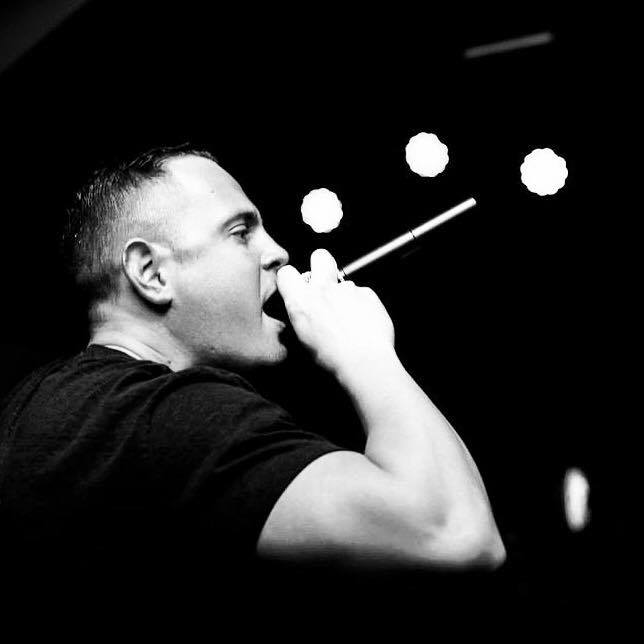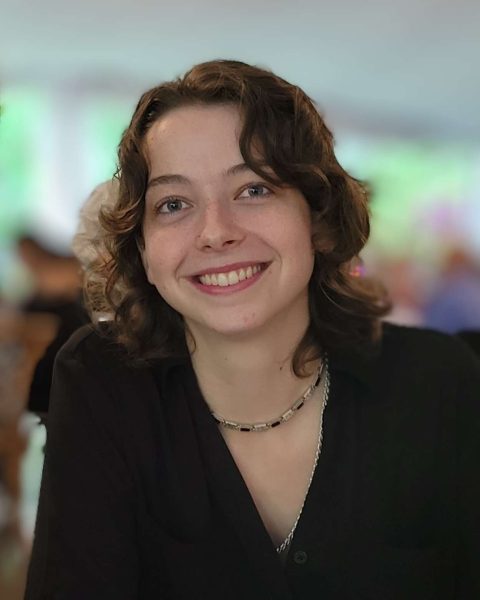Chuckie Campbell: professor by day, hip hop artist by night
April 22, 2015
Did you ever think that the person screaming in the front of your lecture hall, did anything other than grade papers or think of excruciating test questions? Well, Chuckie Campbell, a professor at Bryant and Stratton College, does not fit into that picture at all.
Campbell has three college degrees, including a doctorate in English Literature, creative writing and composition rhetoric from the University of Eastern Kentucky. He is also an adjunct teacher at Canisius College. Now, would you believe that he balances teaching with a rapping career? Campbell uses rapping as a way to tell his story.
“Well I started doing hip-hop when I was real young,” Campbell said. “I grew up in a high crime, low-income neighborhood [in Kentucky] and I guess it was something everybody else was doing. I didn’t come up with a lot of people who surrounded me that were positive influences.
“Hip-hop became like a voice for me to listen to that made sense to me. So it was something I practiced every day and eventually it came to be a mode of expression, and then it became a reason for me to like read a book or recite a poem or write.”
At first glance, the 5-foot 9-inch Caucasian professor is not necessarily the typical hip-hop artist. “There are still difficulties being a white rapper. I think it is mostly that hip-hop is a black art form,” Campbell said. “Being a white rapper obviously comes with its conflicts but at the same time you always have to be aware the way you’re appropriating art.”
The Phaction, Emilio Virella, David “Teaspoon” Hulett and Naheem Shabaaz performed live on stage with Campbell.
“Instead of it being a guy on stage shouting into a microphone. You get a sense that you’re a part of the music as well,” Campbell said.
Everyone needs motivation to write something heartfelt, just ask Taylor Swift. Living his childhood in an impoverished area, he saw some terrible things, especially as a child.
“One of the songs on there, talks about one of my childhood friends who actually died on the basketball court,” Campbell said. “He had a hole in his heart. So, he collapsed and died right there. It was the first time I have ever seen a dead body; it was the weirdest thing in my life for a small kid to see.”
The album “More Die of Heartbreak” was dedicated to his friend, Ralph Prater. Campbell said that he had a chemical imbalance, and that affected how Prater sometimes acted. One night it all went wrong and he got into a fight with his best friend.
“He kind of freaked out on me one night,” Campbell said. “We were so close that I didn’t fight back. My jaw was broken in two separate places, so I got two metal plates in my face. And the [doctors] told me that I would never rap again. We didn’t talk for like five or six years and then I learned when I moved up to Buffalo that he committed suicide in March [2011] and I didn’t get a chance to talk to him and say goodbye. And that’s where the album came from.
“I really believe he died of a broken heart. He was one of the closest people, who really influenced me to get into hip-hop and rap, which ended up saving my life.”
Campbell’s ‘be tough or break’ childhood made him keep his defenses up to protect himself. The life changing moment came by one of his teachers on his pursuit of his Bachelor’s degree.
“I had a teacher, Matthew Melton at Lee University,” Campbell said. “I would go to class every day and wear these big hoodies and go to the back of the class and sit in the corner and pull the hoodie down. I didn’t want anyone to say anything.
“He read one of my essays and stopped me when I was going out of class and asked me ‘What’s wrong with you? Why are you acting like this?’ I was just pushing people away. He was responsible for breaking those walls down.”
Campbell emphasized the importance of what Melton did for him. Melton helped him to become more open-minded to different things and opportunities. Later, Melton advised Campbell to continue his journey of academic success to get a master’s degree and later a doctorate. Campbell declined it at first, to pursue his professional basketball career in Venezuela, but after an injury he followed his advice and got his doctorate.
To be a rapper, Campbell has to go to tour to other states. As recently as last month, Campbell went across the country to share his music like South by Southwest or SXSW. Traveling to these far places to go back to Buffalo to teach has its difficulties.
“The last tour that we had, we were on the west coast,” Campbell said. “And we had to make it back for me to teach. We took shifts; we drove from Helena, Montana to Buffalo, and it was 36 hours straight.”
Campbell performs locally in Buffalo and hosts events to help the urban community. The event, Hip-hop for Homeless, was held on April 19. Showcasing local hip-hop artists to raise awareness for the homeless in Western New York.
After asking if he checks his YouTube views on his music videos, Campbell laughed and said, “Do you know what? That’s a sensitive subject because when we first put the video out on YouTube it had 10,000 views [the first week]. Because the album was still coming out, YouTube accused me of plagiarizing myself and they erased my video. So we lost 10,000 views, which was very upsetting.”
When it comes to his teaching style, Campbell believes that teachers should focus on “building relationships” with his students. He strives to help the students’ confidence in writing by using their voice and adapting it to other situations.
“More than anything else, I think it’s about empowerment,” Campbell said. “I want to show them how to use language to empower themselves. How to take their nature and normal way of speaking within their community and bring that out into a different forms of community.”
On March 30 this year, Campbell spoke with many others like Erie County Executive Mark Poloncarz and Mayor Byron Brown for TEDx for Youth @ Buffalo, which was hosted at Buffalo State’s Social Hall in the Campbell Student Union.
Campbell spoke about language and spoken identity. He focused on how language was “our bond and our barrier.” He stated that we forget what language is doing in our lives. For example: “Math is the language of science.” Campbell reiterates the facts of how we associate colors with meanings, but they conflict. Such as red on a stop sign compared to red color on a faucet handle.
In Campbell’s favorite song on the album, “Synesthesia,” he spoke about its meaning and how this affects our society. “I really liked ‘Synesthesia,’” Campbell said. “My idea was that if we had social, cultural synesthesia, which is like a condition where your senses become cross-wired, so people will hear color and see sound. That’s crazy to us, but I imagined if our social constructions got cross-wired the same way, people would be forced to see each other as human beings and their complexity. Instead of reducing people to what they want them to be, which is what happens with stereotypes.”
Campbell is currently multitasking his teaching and rapping career. “The Call of Autumn,” coming out as an EP or an album, is Campbell’s next production. “I can feel something special happening,” Campbell said.
Next time after class, maybe instead of putting your eyes straight to your iPhone as you scurry off to your next class, stop and ask your teacher, “What do you do for fun?” I mean, they are humans after all.
Email: [email protected]




